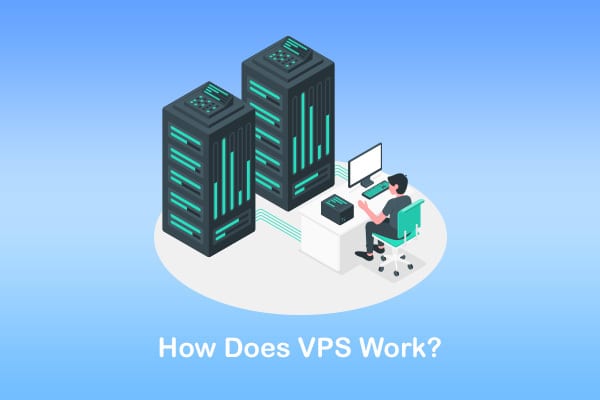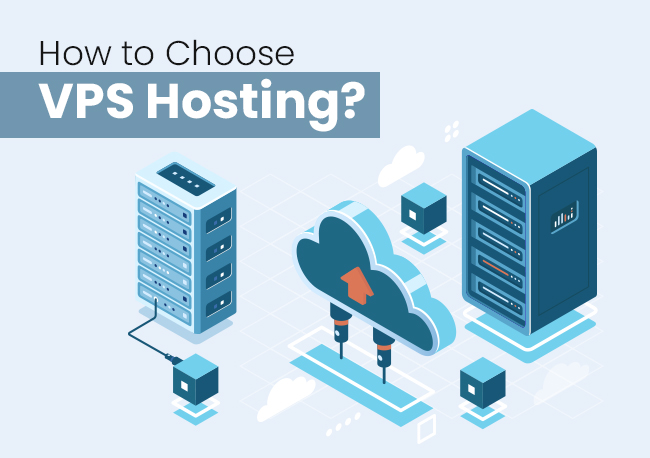
Challenges and Solutions in VPS Hosting: Certainly, let’s explore some common challenges in VPS hosting and potential solutions:
How does VPS hosting compare to other services?
In the past, the growth trajectory in terms of hosting requirements for a standard website was pretty straightforward – the project would start on a cheap shared plan and upgrade to a dedicated server when its traffic levels grew sufficiently.
Both shared hosting and dedicated servers have their pros and cons. Shared plans are cheap, but they can never give you the consistent performance users look for in a website. And while dedicated servers will provide excellent loading speeds, they’re quite pricey and are not particularly flexible.
VPS hosting is a best-of-both-worlds solution. It gives you more power and reliability than a shared package, and it’s much more flexible and usable than a dedicated server. Last but not least, all this comes at a reasonable price.

Challenges and Solutions in VPS Hosting – What are the benefits of VPS hosting?
VPS hosting excels in three key aspects: reliability, security, and scalability.
Your virtual server is supplied with a set of hardware resources that are available to you 24/7. You can rely on them anytime, meaning more predictable performance and consistent loading speeds.
There’s also a dedicated IP. You’re the only one using it, so you don’t need to worry about anyone else ruining its reputation or exposing you to security risks.
And while the guaranteed resources and IP address are available to dedicated server users as well, the flexibility delivered by the virtualization layer isn’t. That’s the main difference between virtual and dedicated servers – unlike physical machines, VPSs can be easily deployed, suspended, moved, and re-configured, especially when they’re hosted in the cloud. This helps in two ways.
First, in the event of a problem with the hardware powering your cloud VPS, your host can easily re-deploy it on a healthy machine and minimize what could potentially be prolonged downtime.
The other aspect virtualization technology helps with is the ability to quickly upgrade or downgrade your hosting solution. Your VPS’ hardware configuration can be updated with a few clicks, so you can add or remove resources without moving your site’s files and databases.
It’s a convenience that could also save you some money. For example, at ScalaHosting, our cloud VPS hosting plans are fully customizable. You can pick the exact amount of processing power, memory, and storage you need and upgrade individual components at will.
If you need a couple more CPU cores, for example, you can add them without upgrading the RAM or SSD storage. On the one hand, this enables us to utilize our hardware more efficiently. More importantly, it makes our solutions more cost-effective for you because you’re not paying for resources you’re not going to use.
Challenges and Solutions in VPS Hosting
- Resource Limitations:
- Challenge: VPS plans come with allocated resources, and exceeding these limits can lead to performance issues.
- Solution: Regularly monitor resource usage, optimize applications, and consider upgrading your VPS plan for more resources if needed.
- Security Concerns:
- Challenge: VPS environments are susceptible to security threats, including unauthorized access and malicious activities.
- Solution: Implement robust security measures such as firewalls, regular security audits, and keeping software up-to-date. Consider using security tools and practices like SSH key authentication.
- Limited Technical Support:
- Challenge: Some VPS providers may offer limited technical support, leaving users responsible for server management.
- Solution: Choose a VPS provider with reliable customer support. Alternatively, consider managed VPS hosting where the provider handles server management tasks.
- Downtime and Uptime Issues:
- Challenge: VPS hosting can experience downtime due to maintenance, hardware failures, or other issues.
- Solution: Choose a reputable hosting provider with a high uptime guarantee. Implement redundancy and backup solutions to minimize downtime impact.
- Network Performance:
- Challenge: Network latency and performance issues can affect the responsiveness of applications hosted on a VPS.
- Solution: Choose a VPS provider with multiple data centers and a strong network infrastructure. Optimize your applications for efficient data transfer.
- Backups and Data Loss:
- Challenge: Inadequate backup strategies can result in data loss in case of accidental deletion or hardware failures.
- Solution: Regularly back up your data, and store backups in a secure offsite location. Automate backup processes and test data restoration procedures.
- Scaling Challenges:
- Challenge: Scaling a VPS may be challenging, especially if there’s a sudden increase in traffic or resource requirements.
- Solution: Plan for scalability from the beginning. Choose a VPS provider with easy scalability options or consider cloud-based solutions that offer on-demand resources.
- Complex Server Management:
- Challenge: Managing a VPS requires technical expertise, and users may face challenges in configuring and maintaining the server.
- Solution: Invest time in learning server management skills or opt for managed VPS hosting where the provider takes care of routine maintenance tasks.
- Software Compatibility:
- Challenge: Installing and maintaining software packages can be challenging if there are compatibility issues with the operating system or other dependencies.
- Solution: Stay informed about software compatibility and regularly update both the operating system and applications. Utilize package managers for easier software management.
- Cost Considerations:
- Challenge: While VPS hosting is more affordable than dedicated servers, costs can still accumulate, especially with additional resources or premium features.
- Solution: Evaluate your hosting needs carefully, consider pay-as-you-go or scalable plans, and periodically review your hosting requirements to optimize costs.

Conclusion -Challenges and Solutions in VPS Hosting
Addressing challenges in VPS hosting requires a combination of proactive management, choosing the right hosting provider, and adopting best practices for security and performance. Regularly assessing your hosting environment and staying informed about emerging technologies can contribute to a smooth and efficient VPS hosting experience.
